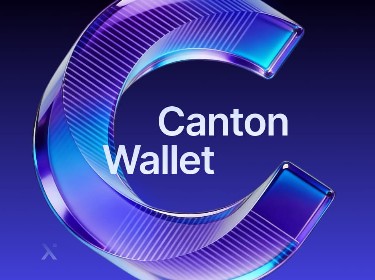Blockchain facilitates major transformations in the finance industry, bringing decentralization and creating more advanced and user-friendly financial solutions.
It is fascinating how blockchain has evolved from an odd technology, whose pool of applications was limited to cryptocurrency transactions, into a flagship solution revolutionizing many and varied domains. It is now predicted that blockchain’s market size will reach $67.4 billion by 2026.
However, finance is still the sphere where blockchain flourishes to the max.
“There are very few fundamental shifts in global infrastructure that can happen in our lifetime. The financial infrastructure is one of them, and the Blockchain is changing the way we think about the transfer of value.” ― Adam Draper, founder and managing director at Boost VC.
In this article we will discuss how blockchain is changing finance and what benefits it brings, and will take a look at the real use cases of blockchain in finance
How does blockchain impact the finance industry? Key benefits
![]()
Morgan Stanley, Commonwealth Bank of Australia, Goldman Sachs — are just a few finance leaders investing in blockchain. With such support, it is very likely that the prediction of financial blockchain market size reaching $22.5 billion in 2026 will be fulfilled.
But what are these finance blockchain benefits that are valued so much? They include:
- Security and transparency — any activity made on blockchain is permanently fixed on the ledger, so no one can make changes or remove anything discreetly.
- Instant settlements — blockchain transactions are completed in a matter of seconds in contrast to traditional ones that can take up to a week.
- Improved smart contract audit services — blockchain smart contracts can automatically perform regular audits. Such checks are more effective and are not prone to errors since smart contracts strictly follow predetermined requirements.
- Reduced expenses — once all documents are digitized, financial organizations can save a significant amount of money on bookkeeping, database maintenance and middlemen commissions.
- Streamlined document management — blockchain allows to securely store necessary documents and get access to them at any time and from any location.
Now let’s take a look at the prominent blockchain in finance use cases and see how advantageous these benefits are.
Wondering what other technology can reform banking operations? Find out what AI can offer
A Network of Networks: How Canton Is Redesigning Financial Infrastructure
What blockchain finance use cases are there?
![]()
Blockchain greatly impacts the finance industry, with 6 spheres experiencing change the most. These are:
- Asset management
- Payments and fund transfers
- Banking
- Document management
- Trade finance
- Insurance
Let’s examine these blockchain use cases in finance in detail.
#1 Asset management
The traditional approach to asset management is slow and complicated since it involves numerous intermediaries. Blockchain tackles this downside by enabling stakeholders to manage their digitized assets directly, with no external assistance. It is achieved as all necessary data is stored on the ledger and is instantly accessible on request.
Besides, thanks to smart contract, recurrent asset management operations such as compliance and regulatory reporting can be automated. Thus, they can be performed within fixed time limits and strictly following the rules, excluding human error. It is especially useful for international companies that have to comply with different jurisdictions.
In addition, blockchain can serve as a platform for digital portfolio, helping to establish wider market coverage, so if you decide to implement your blockchain in your FinTech business, turn to a trusted smart contract development company with experience in this domain.
#2 Payments and fund transfers
Traditionally, payments and fund transfers are executed by middlemen, which causes extra expenses. It is also quite long — up to 2 days for a domestic operation and 2-7 days for international ones.
In the meantime, payments made on blockchain are peer-to-peer operations, meaning instantaneous settlement and no extra spendings. Besides, blockchain allows the installation of reliable KYC and AML tools that enable real-time authentication and strong protection from fraudsters.
One more advantage of making payments on blockchain is the ability to choose from tokenized fiat, stablecoin, or cryptocurrency.
#3 Data and document management
All financial operations require identity verification to prevent fraudulent activity. To perform this, numerous documents have to be collected and certified. Moreover, papers usually go through several mediators, such as bank officers or notaries.
Stored on blockchain, documents are easily accessible whenever required. This ensures that all financial operations, from regular payments to loans and mortgages, are executed much faster.
Also, since no change in the ledger can go unnoticed, data and document management on blockchain is not just effective, but very tamper-proof. For maximum level security, sensitive data can be stored on permissioned blockchains which grant access only to a restricted list of approved users.
Another advantage of blockchain in finance document management is that databases built on blockchain can be effortlessly submitted to regulatory agencies for audit and compliance control.
Pay attention to DocFlow — blockchain-based document management solution guaranteeing uncompromised data security and authenticity
#4 Banking
As a rule, banking operations such as getting a loan or a mortgage, or even processing payments are slow and frustrating. Also there are always intermediaries necessary to collect all papers, stamps, signatures, and whatsoever. It can take months from the moment you start the process till the actual settlement.
On blockchain, verification of data authenticity and KYC/AML procedures go in real time without any middlemen. Moreover, once the documents are on the ledger, you don’t need to recollect them again in case you want to apply for another loan. This significantly reduces time and money waste and minimizes operational risks.
Banks can leverage smart contracts to facilitate repetitive operations and payments, making the overall workflow go smoother and a way faster.
Blockchain can also help avoid risks related to creditworthiness of a person. Currently there is no universal database with credit scores, meaning that applicant’s credit history is only valid within one country. It causes major difficulties when there is a need to apply for a loan in a foreign country, and also makes room for document falsification.
Speaking of loans, blockchain also contributes to facilitated loan collateralization as tokenized assets can be evaluated and approved straight off. Using NFTs as loan collateral means that the borrower and the lender can decide between them on the value of the token, without having to rely on third parties.
This way, the borrower can get the money without selling the asset. Meanwhile, the lender is well protected — if the money can’t be returned, the NFT simply transfers to the lender.
#5 Trade finance
Trade finance deals with transactions linked to domestic and international supply chains. The processes behind these operations have become outdated long ago with important data still being stored in paper format. This causes major security vulnerabilities and results in human mistakes. Not to mention the extremely low speed of transaction settlement — it can take 90-120 days until all documents are verified and stakeholders see eye to eye on the related aspects.
Blockchain makes trade finance operations secure and efficient by digitizing every bit of the supply chain lifecycle — both assets and papers. This results in decreased processing times, lower capital requirements and operating costs, and reduced risks of fraud.
#6 Insurance
According to statistics, insurance fraud causes $80 billion worth of damage annually in the US alone with people claiming insurance payouts for fake incidents or tampering with the policy terms. Blockchain tackles this issue since it is impossible to falsify data stored on the ledger.
But blockchain helps not only to combat fraud and forgery, but can automate repetitive manual tasks thanks to smart contracts. Thus, operations can be performed faster and be less vulnerable to occasional mistakes or intended interference.
Also, storing all the related documents and assets on blockchain makes it easier to apply for reinsurance as you won’t need to collect and verify everything once again.
Want to know more about blockchain use cases in the insurance sphere? Read this article
Blockchain in finance solutions: PixelPlex success stories
We see great potential in blockchain being applied to different finance domains and have delivered several innovative solutions leveraging the technology:
MyBit is a decentralized platform for comfortable asset management and investment. It allows users of any financial background to participate in ICO campaigns with various currencies — BTC, ETH, DASH, Monero — and provides constantly updating transaction history and campaign statuses.
MyBit has its own MYB token. It can be used in voting, locked for investment in long-term projects via MyBit Ventures fund, or exchanged for other tokens.
The solution also uses smart contracts that help automate the functionality of hedge funds, enabling direct investments and no need for brokers’ assistance.
Obito is one more solution helping to manage one’s assets efficiently. The platform allows to digitize different types of real-world assets: financial bonds, real estate, intellectual property, and collectibles.
Obito runs on Bitcoin blockchain, making token ownership transparent and secure. There are also smart contracts that keep track that all conditions are met before the token transaction is validated. Smart contracts can also be used to check requirements and conditions across various jurisdictions to ensure compliance with regulations.
The future of blockchain in finance
We now see how blockchain actively revamps the finance industry, successfully combating obsolete elements such as numerous middlemen, long settlement time, and inefficient document management. Instead, the technology brings multiple benefits across different financial domains, from asset management to trade finance.
Since the industry discovers more impactful blockchain in finance use cases, we will see an increase of interest towards the technology from leading banks and financial companies.
Thinking of building a financial solution running on blockchain? You’ve come to the right place. Our financial software development company with experience in blockchain consulting will gladly help you look into the details so that you start your business transformation with full knowledge.
Contact our blockchain development company and let’s see how we can change the financial landscape together.




